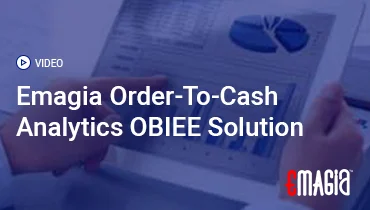In today’s digital age, electronic transactions have become the norm, streamlining the way we handle payments and financial operations. Among these, ACH Debit stands out as a pivotal mechanism facilitating seamless fund transfers. This comprehensive guide delves into the intricacies of ACH Debit, exploring its meaning, functionalities, benefits, and how platforms like Emagia enhance its utility.
What is ACH Debit?
An ACH Debit is a type of digital transaction where money is electronically withdrawn from the payer’s bank account and sent to the recipient through the Automated Clearing House system. This method is commonly employed for automatic payments like utility charges, home loans, and monthly subscriptions. The process is initiated by the payee, with the payer’s prior authorization, ensuring a secure and efficient transaction.
Understanding ACH Debit Transactions
How ACH Debit Works
The ACH Debit process begins when a payee, such as a service provider, obtains authorization from the payer to withdraw funds from their account. Once authorized, the payee initiates the transaction through their financial institution, which then communicates with the ACH network to process the payment. The funds are subsequently debited from the payer’s account and credited to the payee’s account, typically within one to two business days.
Types of ACH Debit Transactions
ACH Debit transactions are categorized based on their initiation method and purpose. Some common types include:
- Recurring Payments: Regular payments such as rent, utilities, and subscriptions.
- Point-of-Sale (POS) Entries: Transactions initiated at retail locations using electronic terminals.
- Internet-Initiated Entries (WEB): Payments authorized online, commonly used for e-commerce.
- Prearranged Payment and Deposit Entries (PPD): Typically utilized to directly debit customer accounts, especially for paying regular bills.
ACH Debit vs. ACH Credit
- ACH Debit: The transaction is started by the recipient, who requests funds to be taken from the sender’s bank account.
- ACH Credit: Started by the individual or business making the payment, funds are transferred directly to the recipient’s account.
For instance, setting up automatic bill payments involves ACH Debit, whereas direct deposit of salaries is an example of ACH Credit.
Benefits of ACH Debit
ACH Debit offers numerous advantages for both individuals and businesses:
- Efficiency: By automating the payment process, it minimizes the need for manual work and cuts down on administrative burdens.
- Cost-Effective: These transactions typically come with reduced fees when compared to using checks or credit/debit card payments.
- Security: Security encryption helps significantly reduce the chances of fraudulent activity during ACH transfers.
- Convenience: Ideal for recurring payments, ensuring timely settlements.
Risks and Considerations
Despite its benefits, ACH Debit transactions come with certain considerations:
- Authorization: Proper authorization is crucial to prevent unauthorized debits.
- Processing Time: While generally quick, some transactions may take up to three business days.
- Insufficient Funds: If the payer’s account lacks sufficient funds, the transaction may fail, potentially incurring fees.
ACH Debit in India: The NACH System
In India, the National Automated Clearing House (NACH) system, managed by the National Payments Corporation of India (NPCI), facilitates ACH-like transactions. NACH enables high-volume, low-value transactions, supporting both credit and debit services for corporates, banks, and financial institutions. It’s commonly used for distributing subsidies, pensions, and collecting utility payments.
How Emagia Enhances ACH Debit Processes
Emagia, a top innovator in digital order-to-cash automation, delivers powerful solutions designed to streamline and enhance ACH Debit operations:
- Automated Payment Processing: Streamlines recurring payments, reducing manual intervention.
- Real-Time Monitoring: Provides insights into transaction statuses, aiding in cash flow management.
- Integration Capabilities: Seamlessly integrates with existing ERP systems, enhancing operational efficiency.
- Compliance Management: Ensures adherence to regulatory standards, mitigating risks associated with ACH transactions.
FAQs
What does ACH Debit mean?
An ACH Debit is a digital transfer that deducts funds from the sender’s account and deposits them into the recipient’s account via the ACH network.
How does ACH Debit differ from ACH Credit?
In an ACH Debit, the payee initiates a request to withdraw money from the payer’s account, whereas in an ACH Credit, the payer initiates the transfer of funds to the payee’s account.
Is ACH Debit secure?
Yes, ACH Debit transactions are encrypted and regulated, making them a secure method for transferring funds.
Can ACH Debit be used for one-time payments?
Absolutely. While commonly used for recurring payments, ACH Debit can also facilitate one-time transactions with proper authorization.
What happens if there are insufficient funds during an ACH Debit?
If the payer’s account lacks sufficient funds, the transaction may be declined, and the payer could incur overdraft or NSF (Non-Sufficient Funds) fees.
In conclusion, ACH Debit serves as a vital component in the modern financial ecosystem, offering a secure, efficient, and cost-effective method for electronic fund transfers. By understanding its mechanisms and leveraging platforms like Emagia, businesses and consumers can optimize their payment processes, ensuring seamless financial operations.


